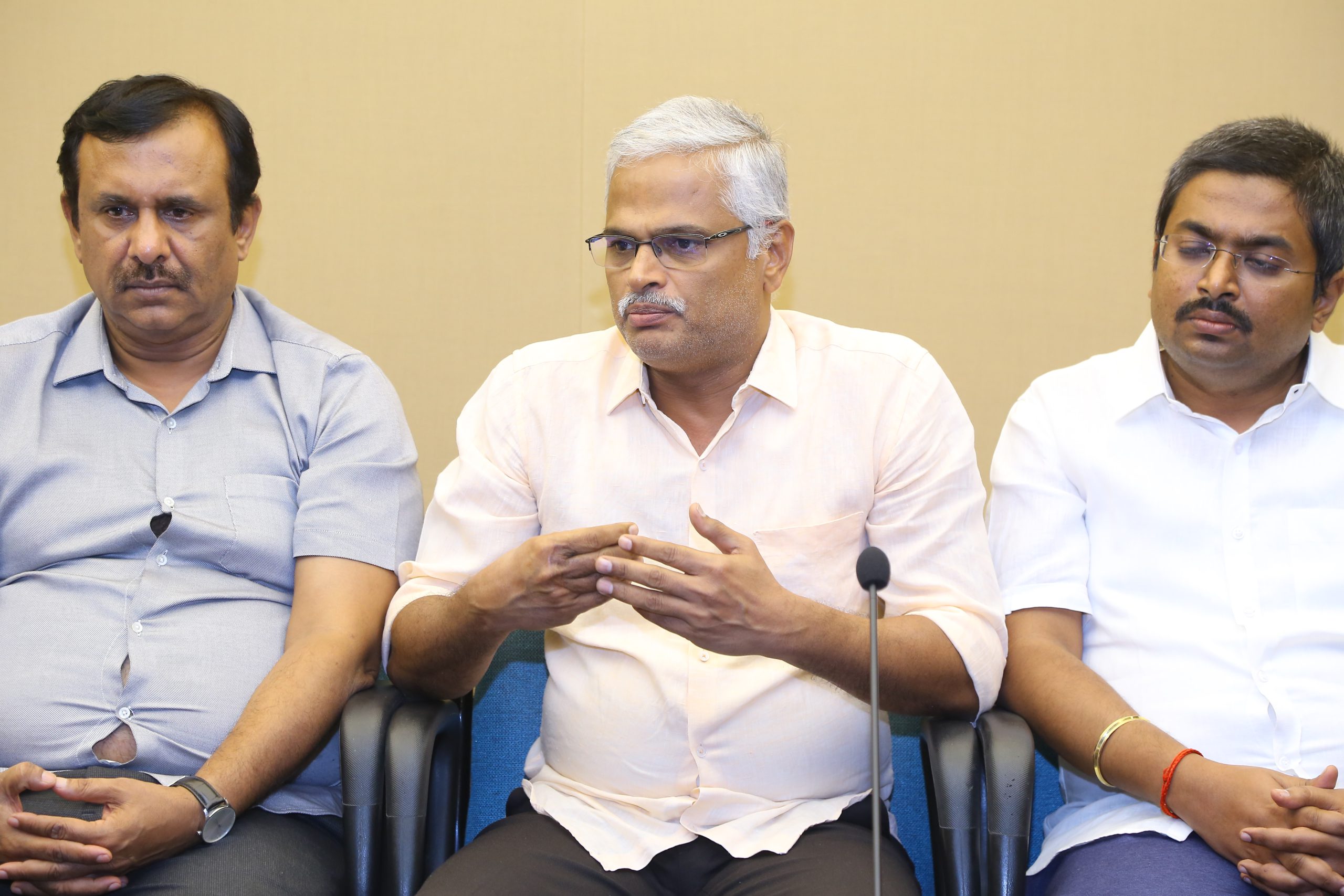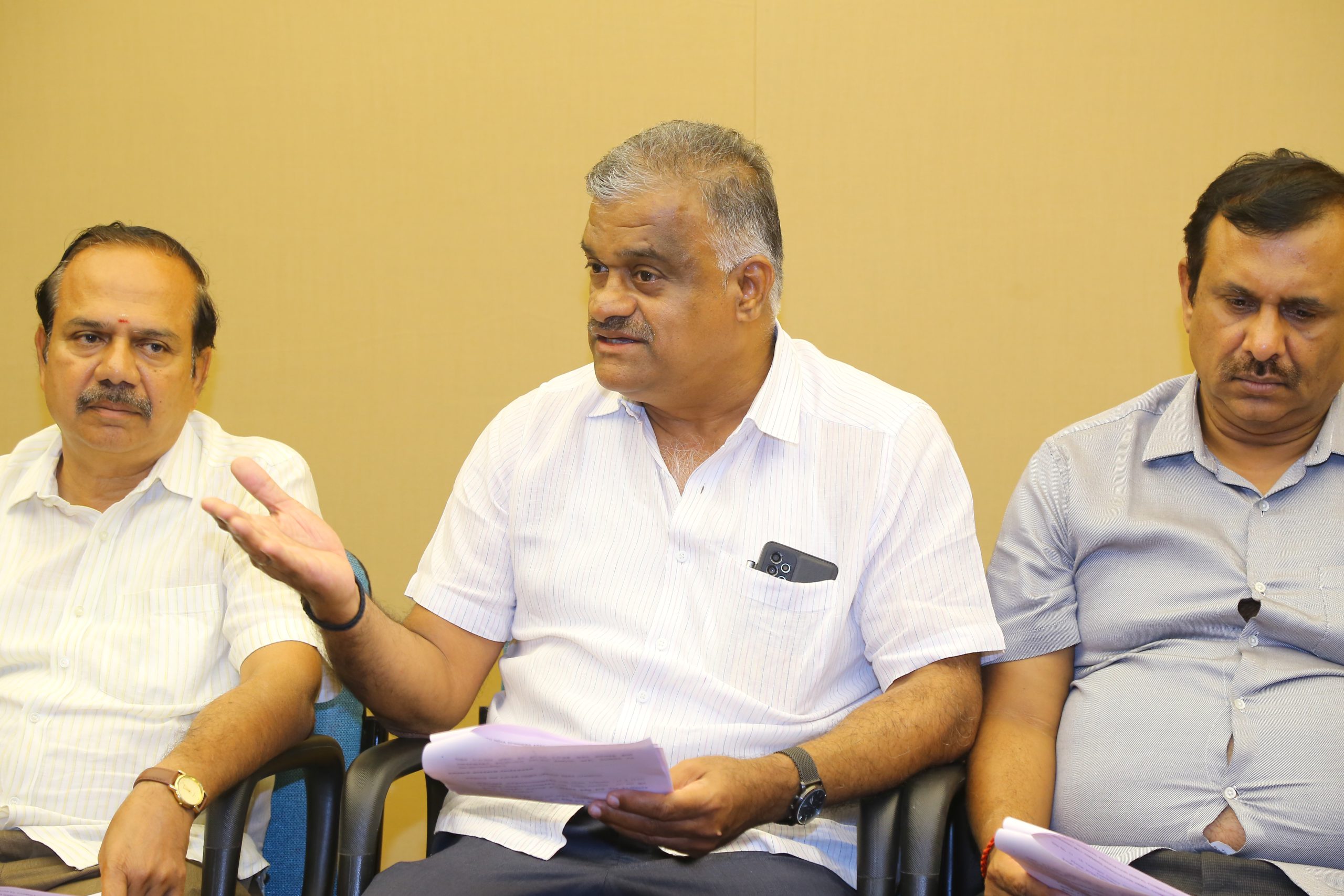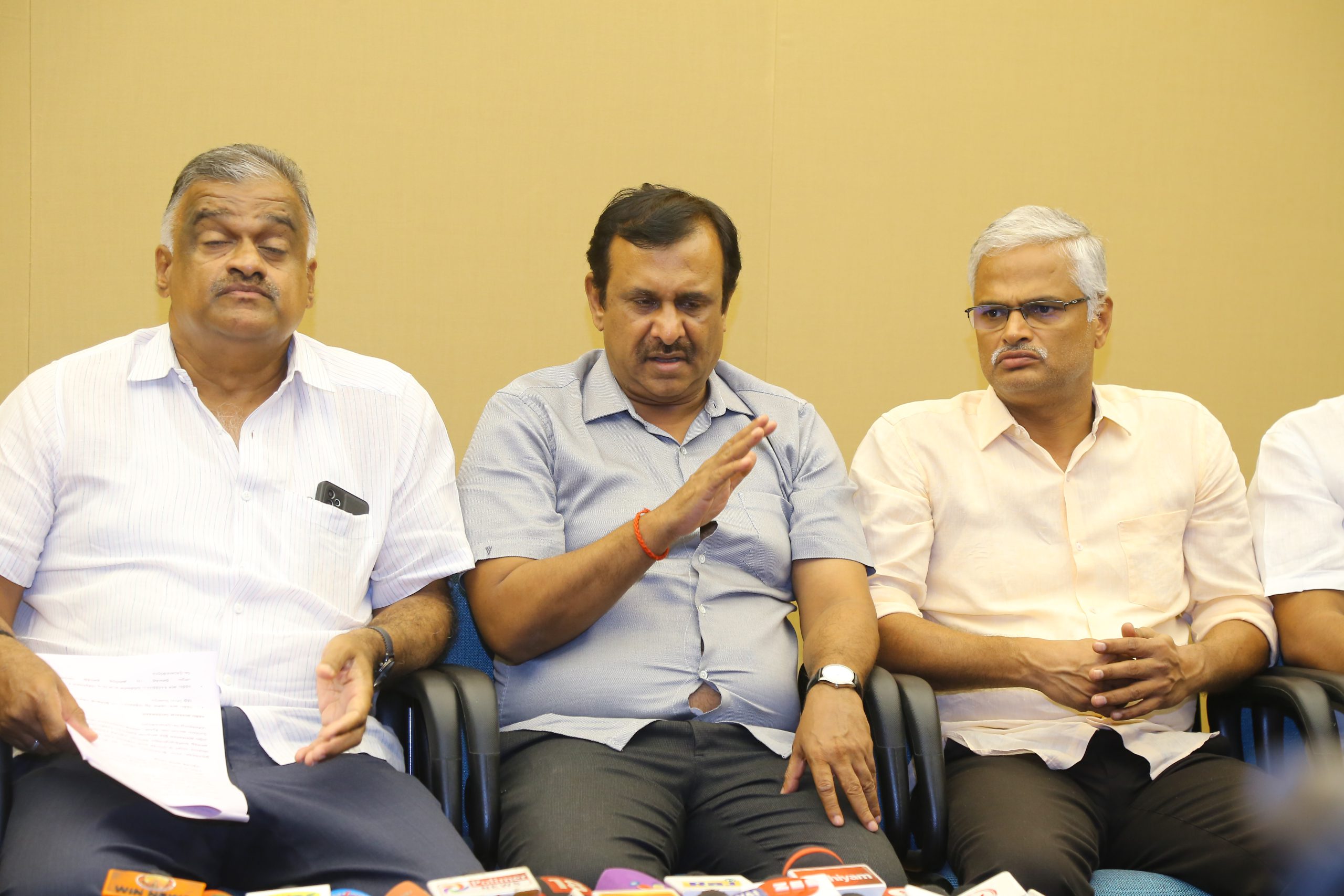
The MSME Spinning Mills Associations in Tamil Nadu held an emergency meeting on July 12th, 2023, where stakeholders unanimously decided to halt the production and sale of yarn starting from July 15th. The press meeting regarding this announcement was held today in the presence of Venkadesh Prabu, Manager- SISPA, Vijaya Kumar, Treasurer- SISPA, Venkadesan Vice President- SISPA, Jagadeesh Chandran, Secretary- SISPA, Sanmuga Sundaram, Secretary- ISMA and Prabu- Vice President- ISMA. They emphasized that the spinning industry in Tamil Nadu has been grappling with substantial losses, experiencing a 28% decline in yarn and textile exports for the first time in 20 years.


The current cotton price stands at Rs. 58,000 per candy. However, as per the guidelines of the South Indian Textile Research Association (SITRA), the minimum conversion cost from cotton to yarn should be Rs. 2/- per kg. Unfortunately, the conversion cost in the present situation is only Rs. 1/- per kg, resulting in a loss of Rs. 40 per kg. This translates to a daily loss of Rs. 1,00,000 for a mill with 10,000 spindles. The mills are struggling to meet loan repayments, purchase payments, electricity bills, and statutory obligations, putting them at risk of closure.
Several factors have contributed to this crisis. The imposition of an 11% import duty on cotton has made domestic cotton prices 15% higher, leading to the loss of international orders. Banks’ interest rates have risen from 7.5% to 11%, increasing the cost of yarn production. Additionally, the Tamil Nadu Generation and Distribution Corporation has raised electricity tariffs, further burdening spinning mills.

The government of India provided short-term loans through the Emergency Credit Line Guarantee Scheme to support the industry, but loan repayments have become an additional burden. Unrestricted imports of yarn and fabrics from countries like China, Vietnam, and Bangladesh have also negatively impacted the sector.
The associations appeal to the government of India to withdraw the import duty on cotton, reduce interest rates, restructure outstanding loans, and implement supportive policies for yarn and fabric exports. They urge the government of Tamil Nadu to withdraw the electricity tariff hike, cancel amendments, and provide relief in charges and subsidies.

The spinning industry’s plea emphasizes the need for a comprehensive approach, including a unified national policy, controlled imports, extension of MSP to cotton yarn, and promoting green energy. The associations hope that the governments will consider their appeal and take immediate action to revive the spinning industry, which is currently facing an existential crisis.



